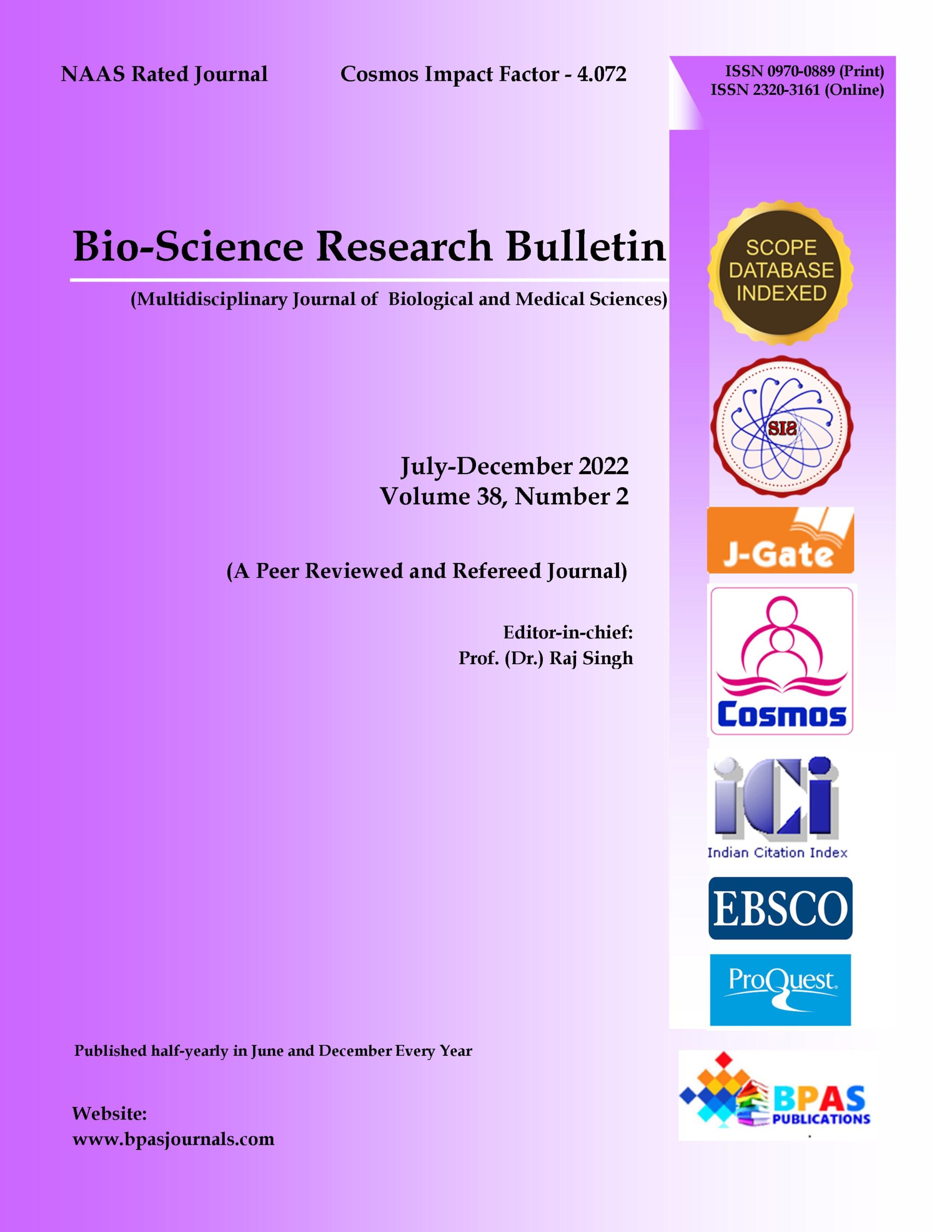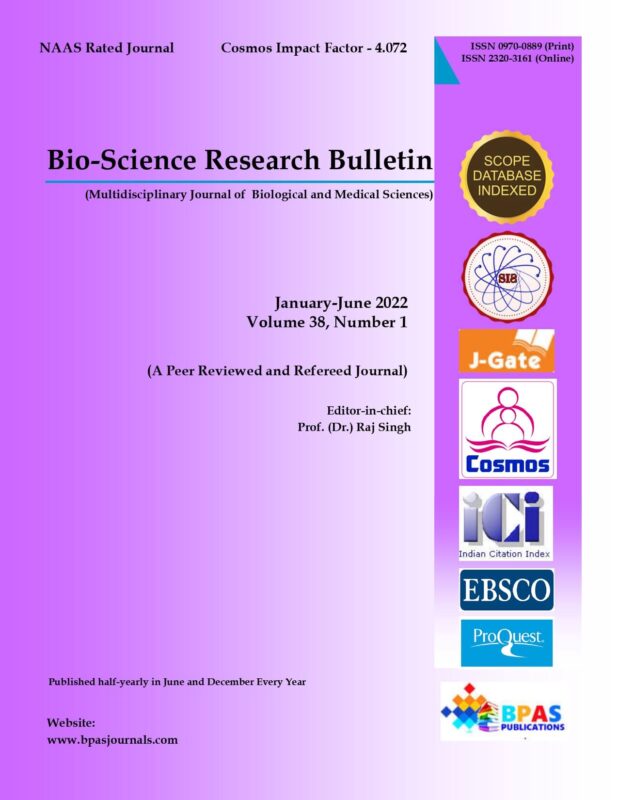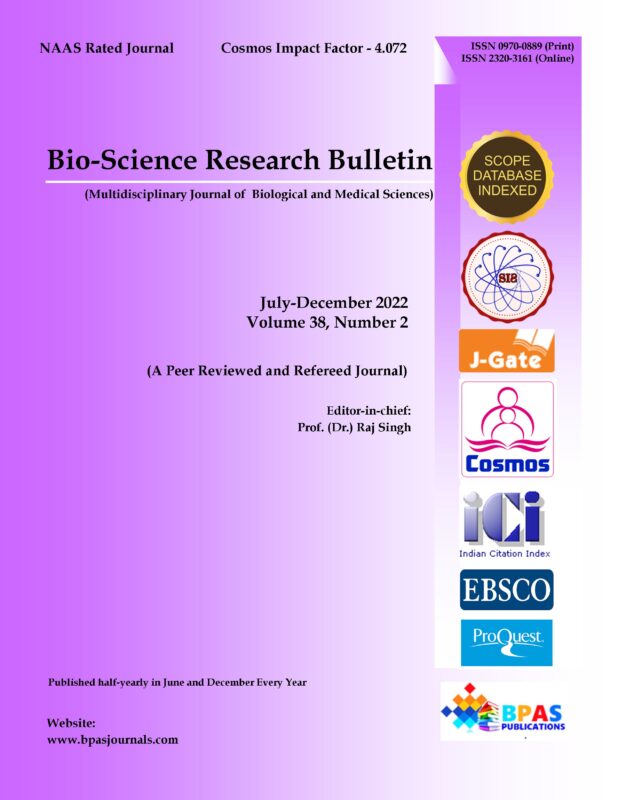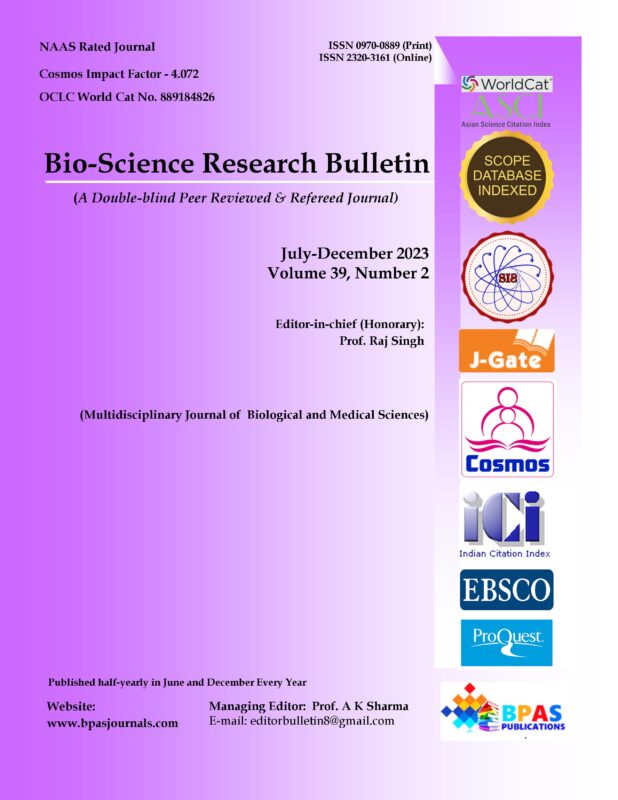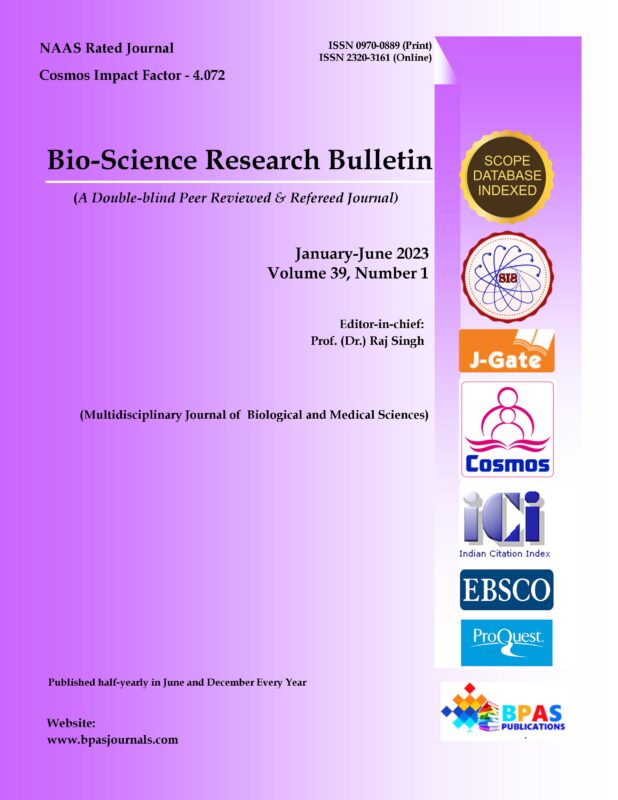A Study on the Allelopathic Impact of Chenopodium murale L. on Wheat Crop Plants
9.38$
1Azad Mor,
2Mukesh Kumar,
3Rachna Nara,
4Raj Singh*
Bio-Science Research Bulletin
Volume 38, Number 2
July-December 2022: P.95-99
DOI: 10.5958/2320-3161.2022.00013.X
Original Research Article
Description
A Study on the Allelopathic Impact of Chenopodium murale L. on Wheat Crop Plants
1Azad Mor,
2Mukesh Kumar,
3Rachna Nara,
4Raj Singh*
Author’s Affiliation:
1,2,3,4Department of Biotechnology, Maharishi Markandeshwar (Deemed to be University), Mullana, Ambala, Haryana 133207, India
*Corresponding Author:
Raj Singh
Department of Biotechnology, Maharishi Markandeshwar (Deemed to be University), Mullana, Ambala, Haryana 133207, India
E-mail:
How to cite this article: Mor A., Kumar M., Nara R., Singh R. (2022). A Study on the Allelopathic Impact of Chenopodium murale L. on Wheat Crop Plants.Bio-Science Research Bulletin, 38(2), 95-99.
Received on 20.05.2022
Revised on 25.09.2022
Accepted on 24.11.2022
Published on 15.12.2022

